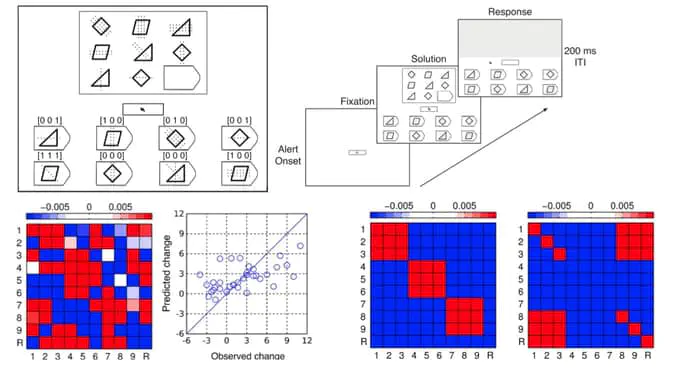
Abstract
Recent reports of training-induced gains on fluid intelligence tests have fueled an explosion of interest in cognitive training-now a billion-dollar industry. The interpretation of these results is questionable because score gains can be dominated by factors that play marginal roles in the scores themselves, and because intelligence gain is not the only possible explanation for the observed control-adjusted far transfer across tasks. Here we present novel evidence that the test score gains used to measure the efficacy of cognitive training may reflect strategy refinement instead of intelligence gains. A novel scanpath analysis of eye movement data from 35 participants solving Raven’s Advanced Progressive Matrices on two separate sessions indicated that one-third of the variance of score gains could be attributed to test-taking strategy alone, as revealed by characteristic changes in eye-fixation patterns. When the strategic contaminant was partialled out, the residual score gains were no longer significant. These results are compatible with established theories of skill acquisition suggesting that procedural knowledge tacitly acquired during training can later be utilized at posttest. Our novel method and result both underline a reason to be wary of purported intelligence gains, but also provide a way forward for testing for them in the future.